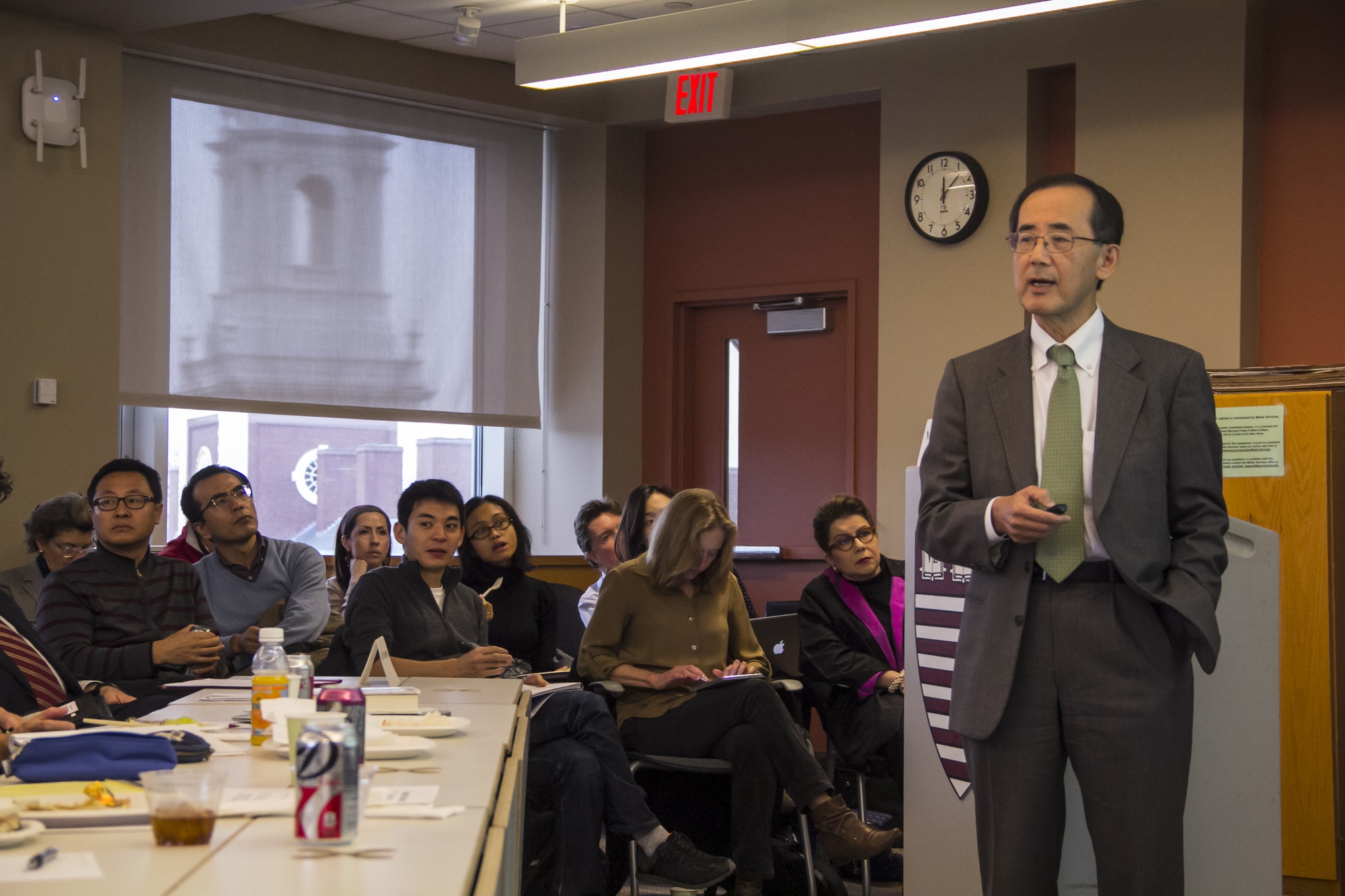
News
Summers Will Not Finish Semester of Teaching as Harvard Investigates Epstein Ties

News
Harvard College Students Report Favoring Divestment from Israel in HUA Survey

News
‘He Should Resign’: Harvard Undergrads Take Hard Line Against Summers Over Epstein Scandal

News
Harvard To Launch New Investigation Into Epstein’s Ties to Summers, Other University Affiliates

News
Harvard Students To Vote on Divestment From Israel in Inaugural HUA Election Survey
Former Bank of Japan Gov. Dispels Myths About Japanese Economy

Former Governor of the Bank of Japan Masaaki Shirakawa discussed the challenges facing his country’s economy and defended past economic policies in the face of criticism from world leaders and the media at the Harvard Kennedy School on Thursday afternoon.
Shirakawa, who served as central bank governor from 2008 through this past March, presided over some of the country’s most challenging economic times in recent history, including the global financial crisis in 2008 and a tsunami and earthquake that ravaged the country in 2011.
Although many have criticized Japanese economy as poorly-run, Shirakawa explained the origins of Japan’s economic difficulties and compared them to other developed countries.
“Japan is treated as unique in the world and as having a struggling economy that resulted from policy failures,” Shirakawa said. “Japanese politicians are not infallible, but it’s important to know that there were other factors as well.”
Another myth Shirakawa sought to dispel was the notion of Japan’s ‘lost decades’—a phrase that economists and other commentators have used to label two decades of economic stagnation in Japan after a gradual crash in asset prices in the late 80s.
According to Shirakawa, the phrase ‘lost decades’ is misleading because the country’s economic difficulties were very similar to the ones Western nations are experiencing today.
“Japan’s economy in the 1990s was the direct result of the bursting of an economic bubble,” he said. “This is very similar to the burst in the West post-2008, and in fact, the growth rates of Japan’s GDP per capita were about average among developed countries at the time.”
Although bubble bursts are universal, Shirakawa expressed concerns about Japan’s rapidly aging population and hopes that economists and policy-makers would address this problem.
“Japan has to increase labor productivity in the workforce, and specifically among women,” Shirakawa said. “The decline in the number of workers has direct correlations on Japan’s economic growth.”
Shirakawa also emphasized the importance of the central bank’s ability to stabilize the economy through proactive measures with an example from the 1990s, when the BOJ supported the economy by intervening in the stock markets.
“The Bank of Japan purchased bank stocks to prevent huge economic collapses,” he said. “In this way, we were able to prevent massive unemployment.”
Finally, Shirakawa noted that Japan’s economic situation provides lessons for the international community, especially now that Western countries are experi- encing similar economic difficulties.
“Japan’s experience offers a lot of implications for other countries,” he said. “We have to take into account global commonalities and unique so- cietal features when making policy recommendations.”
Want to keep up with breaking news? Subscribe to our email newsletter.
